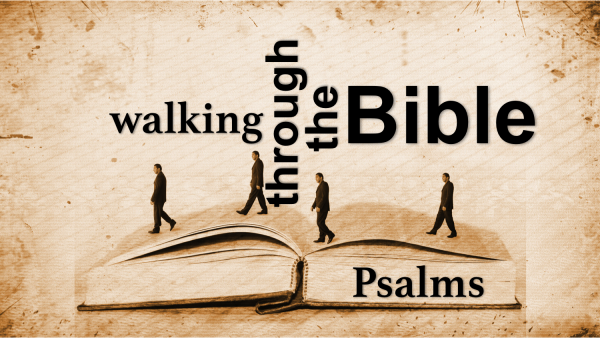This lack of order, though, does not diminish its authenticity or inspiration in the least. It still is a divine book from God in which wisdom and glory is revealed, thus it should be revered as a book of the Book. Among many others, it was Jesus Christ who quoted from the psalms numerous times therefore giving credence o their authenticity.
While David is credited with a good majority of the psalms (over half) others believed to have written one or more are Asaph, the sons of Korah, Moses, Solomon, Ethen, and Heman. Additionally there are almost fifty that cannot be confidently ascribed to anyone (Taylor). Likewise, just as numerous and scattered as their authors are the specific settings and themes of the psalms. In general the book is a collection of praises extended unto God, but each has its own reason and purpose. It is from these different purposes that man enjoys such a benefit as seeing the qualities of God’s nature set forth. Dunn summed up the psalm’s inspired qualities attributed to God as:
“The Lord is our judge and defence (7:8-10); the refuge of the poor (14:6); rock, fortress, strength, and high tower (18:2); redeemer (19:14); the King of Glory (24:10); “my light and my salvation” (27:1); shield (28:7); “my hiding place” (32:7); “a God full of compassion” (86:15); and “our dwelling place in all generations” (90:1).”
These words, though, do not simply relate who God used to be to the people of antiquity; but they tell us who He is and continues to be toward all mankind. That is the treasure of the psalms as set forth by its theme.
Though, as stated, the Book of Psalms is not necessarily arranged chronologically, it does have structure and order. The book of 150 chapters is commonly divided into five sections (books), each corresponding internally. Dunn, again, in his Know Your Bible gave an excellent portrayal of these sections as follows:
• Book I (Psalms 1-41) – Corresponds with Genesis. With the exception of four, all were written by David. Subject: Man, his state of blessedness, fall, and recovery (8:4; 10:18).
• Book II (Psalms 42:72) – Corresponds with Exodus. Includes eighteen written by David. Subject: The nation of Israel, her ruin (42-49); description of the reign of the righteous king in Psalm 72.
• Book III (Psalms 73-89) – Corresponds with Leviticus. It centers in time of Hezekiah. Subject: The sanctuary, referred to in nearly every psalm of this book.
• Book IV – Corresponds with Numbers. Contains two psalms of David (101-103) and other psalms in the time of exile. Subject: The earth, Psalm 90 was written by Moses during the wilderness wanderings.
• Book V – Corresponds with Deuteronomy. Contains fifteen of David’s psalms. This section may have been compiled in the time of Nehemiah and Ezra. Subject: The word of God (107:20). This is the theme of Psalm 119, the greatest Psalm.
With this general understanding of the Book of Psalms, attention is now turned to the grandest theme that appears in the psalms: Christ. The Lord is mentioned more in the psalms than any other Old Testament book, and He is referred to in many different ways. Wilkinson and Boa list many of His portrayals as such: rejected as King by the nations, King of Glory, Protector and Deliverer, ruler in His kingdom, provider of salvation, King-Priest, glorified by God, enthroned, Intercessor, betrayed by a close friend, obedient unto death, made little lower than angels, resurrected, the Creator, the Chief Cornerstone, and eternal. All which He was, He still is.
The Book of Psalms shall forever be a wonder to all who will study it. Its appreciation for God is revealed on every page is the same as all mankind should have. Just as the heavens, so do these psalms declare the glory of God.

